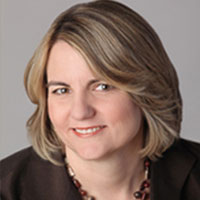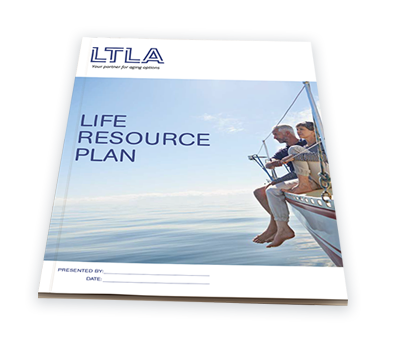
Elder Law: A Safety Net That Protects Assets and Gives People Peace of Mind
Elderly people often worry about their children and grandchildren more than they do about themselves.
Beneficence like this is not necessarily a bad thing. But when seniors take long-term planning into their own hands, they could be headed for trouble—especially if and when a long-term care event hits. That’s when they’re thrown into crisis mode.
“When people understand what we can do to provide them with a safety net that prevents them from running out of money, it lifts a weight off their shoulders,” says attorney Shana Siegel who cares for the needs of seniors, veterans and adults and children with special needs—all whom he regards as extended family. His work is precise, detailed and efficient; his mood compassionate and upbeat.
“Once a client, always a client,” he says. “I’m not just your lawyer but your counselor for life.”
There are so many pitfalls, he says. An individual transfers her home to her children to protect it for Medicaid purposes and uses a general practitioner or real estate attorney to handle the transaction. A major tax problem is likely imminent, he says. “The senior originally bought the house for much less than it is now worth and is entitled to sell the home with a $250,000 ($500,000 for married couples) capital gains tax exemption to which her children are not entitled. Plus, now the kids own the home and it’s subject to the claims of their creditors and/or divorcing spouses.”
Why, then, do people wait so long to reach out to an elder law attorney—if they reach out at all? “They often don’t know we’re here,” says Shana. “They also don’t understand the scope of elder law services.”
Many people think of elder law as “Medicaid planning.” While that is part of it, elder law encompasses a wide range of legal disciplines that, taken together and properly used, can meet the many needs of people who are growing older and/or have disabilities. Elder law addresses issues such as immediate and future financial security, obtaining public assistance to cover the cost of long-term care, ensuring one’s health care wishes will be carried out, and helping to maintain independence and quality of life.
“One move in a plan can potentially disrupt something else,” says Shana. “That’s why I’m a great believer in collaboration with clients and other professionals.” So many other professionals—those specializing in psychological, health, housing, financial issues—need to be involved.”
What’s more, the objective of elder law is not to have everyone rely on Medicaid to ensure that they will not have to pay for long-term care. Rather, the goal is to plan well when a person is healthy to ensure that he or she will be prepared and able to protect his or her life savings in the event of incapacity. This allows people and their families to enjoy peace of mind.
Still, says Shana, health crises do occur. At that moment, the wellbeing of a person’s loved one is far more important than any financial or legal issue.
“We’ve lived some of these experiences with our own families,” he says. “We understand what a person is going through. Compassion matters. Our work is first and foremost a labor of love.”

Elder Care Attorneys the Best Option to Address Key Issues in Senior Lives
Many well meaning and general practitioners lack the detailed and in depth knowledge to address the issues that impact seniors’ lives. Shana Siegel discusses how tax, trust, real estate and Veteran’s issues, if improperly handled, can adversely affect senior lives and explains how advisement from an elder law attorney who is well-versed in the disciplines that affect many elder law matters can help.
FAQs
What is elder law?
Elder law is a legal discipline that addresses the issues commonly faced by older adults. This includes estate planning, Medicare, Medicaid, Social Security, long term care planning, health care decision-making, elder abuse and trust and estate administration. Some attorneys focus almost exclusively on Medicaid planning but a more comprehensive approach better serves clients.
Why should I see an elder lawyer as opposed to a general lawyer?
Most attorneys will draft Wills, powers of attorney and health documents. However, if they are not familiar with the complexities of the health and long term care systems, they cannot tailor these documents to their clients’ needs as they age. Medicaid and other public benefits programs have complex and ever changing rules, so attorneys who do not have deep expertise should not undertake long term care planning.
How do I pick an elder law attorney?
With the aging baby boomers and a slump in other specialties, more attorneys are looking to elder law as an area of practice. It is important for consumers to know whether an attorney has deep expertise in the area or if they are a newcomer to the field. Certification and involvement with the National Academy of Elder Law Attorneys indicates genuine dedication to the area. You should also ask about an attorney’s fee structure and the areas of elder law they focus on. Shana Siegel is at the forefront of an innovative interdisciplinary practice model called life care planning which helps seniors and their families prepare for the myriad of challenges that may arise from aging, illness and/or disability.
Do I have to sign my house over to the nursing home if I need care?
No, most facilities are paid on a month-to-month basis. Even facilities that require a large up front payment will not demand a home be signed over. Furthermore, Medicaid exempts the applicant’s home if a spouse is residing in it. However, proper planning is required to preserve the property for heirs.
What will happen to me if my spouse needs long-term care?
Medicaid considers assets of both spouses in determining eligibility. Without planning, this can mean loss of your hard-earned assets even if you had the funds before you married. We can help you protect yourself so a spouse’s illness does not result in your impoverishment.
Can i transfer my assets to my children and then go into an assisted living or nursing home?
Transfers within five (5) years of applying for Medicaid result in a penalty period being assessed. Depending on your situation, there are policy exceptions and other ways to protect assets even if you will likely need care within five years. There are many pitfalls in Medicaid planning though and only the most experienced attorneys can guide you properly.
My parent is already in a facility. Is it too late to act?
Not necessarily. In most cases, we can still work with seniors to preserve assets even once they enter a facility. Moreover, there are many other ways that we can assist your parent with Medicare and insurance issues, protection of resident rights, prevention of inappropriate discharge and application for Medicaid or VA benefits.
Isn't it expensive to work with an elder law attorney?
Our legal fees for asset protection are typically less than the cost of one month in a nursing home and can result in savings of hundreds of thousands of dollars.
Do I really need a will if I don't have a lot of money?
Almost everyone needs a Will regardless of wealth. A Will ensures your assets pass to the individuals you wish but also appoints individuals to handle your estate, care for minor children and make funeral arrangements for you. Without a Will your loved one will likely have to get a bond and funds left to minors (i.e. grandchildren) will be held up in the surrogate’s office.
How will my child with special needs be cared for after I'm gone?
Many older adults care for their child with disabilities and this is their biggest fear. Too often they fail to plan out of fear and denial. However, we can help put in place a plan to ensure that there are funds available for their loved one without endangering their public benefits. Our firm also helps with transition planning that addresses legal, financial, residential and care issues.
Life Resource Plan
What is the best course of action for you and your loved one? Find out by talking to a consultant and creating a Life Resource Plan.



